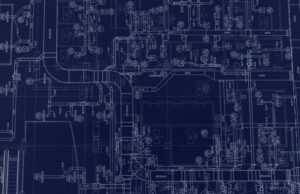We’ve seen firsthand the challenges that homeowners face when dealing with outdated electrical systems. One of the most problematic components we encounter is aluminum wiring. Used predominantly from the 1960s through the late 1970s, aluminum wiring was once a popular choice for residential electrical systems due to its cost-effectiveness and abundant supply. However, as we’ve learned more about its properties and long-term reliability, it’s become clear why aluminum wiring is no longer the preferred material in home electrical systems. Let’s delve into the history, issues, and solutions regarding aluminum wiring in homes, such as scheduling electrical rewiring Ashland, in KY.
The History of Aluminum Wiring
During the post-World War II era, the housing market experienced a boom that required quick and cost-effective building materials. Aluminum was significantly cheaper than copper and readily available, making it an attractive option for builders. From the 1960s, aluminum wiring became a standard for electrical systems in many new homes across the United States and Canada. However, as the years progressed, the drawbacks of using aluminum became evident, leading to its decline in popularity by the late 1970s.
Why Aluminum Wiring Fell Out of Favor
- Expansion and Contraction: Aluminum expands and contracts with heat more significantly than copper. This can lead to loose connections and, subsequently, arcing and overheating, which are serious fire hazards.
- Oxidation: When exposed to oxygen, aluminum oxidizes more quickly than copper. This oxidation can increase electrical resistance and lead to overheating.
- Galvanic Corrosion: When aluminum wiring is in contact with copper or other metals, galvanic corrosion can occur, further compromising connections and increasing the risk of electrical fires.
- Creeping: Under electrical load, aluminum can deform or “creep” out of shape at connection points, loosening the connections over time and increasing the risk of arcing and fires.
These issues significantly increase the risk of electrical fires in homes with aluminum wiring. According to the Consumer Product Safety Commission (CPSC), homes with aluminum wiring are 55 times more likely to have one or more connections reach “Fire Hazard Conditions” than homes with copper wiring.
Beyond the safety concerns, insurance companies may charge higher premiums for homes with aluminum wiring, or even refuse coverage.
The Importance of Professional Assessment and Rewiring
If your home was built or renovated between the 1960s and late 1970s, it’s crucial to determine if aluminum wiring was used. At Air Supreme, we strongly recommend having a professional electrician inspect your electrical system to assess the presence and condition of any aluminum wiring. If found, a comprehensive rewiring is often the safest solution.
Professional Rewiring Solutions
Rewiring a home is not a DIY project. It requires professional expertise to ensure that all aspects of the electrical system are up to current safety standards. At Air Supreme, our licensed electricians specialize in replacing aluminum wiring with copper, enhancing the safety and functionality of your home’s electrical system. We also ensure that all connections and terminations are done according to the National Electrical Code (NEC) standards.
Remember, when it comes to electrical safety, cutting corners is never an option. Trust professionals who understand the complexities and hazards associated with aluminum wiring. Your home’s safety—and your peace of mind—are worth the investment.
Contact Air Supreme Heating and Air Conditioning for rewiring and other electrical needs. Your HVAC & electrical experts in the Tri-State Area.











